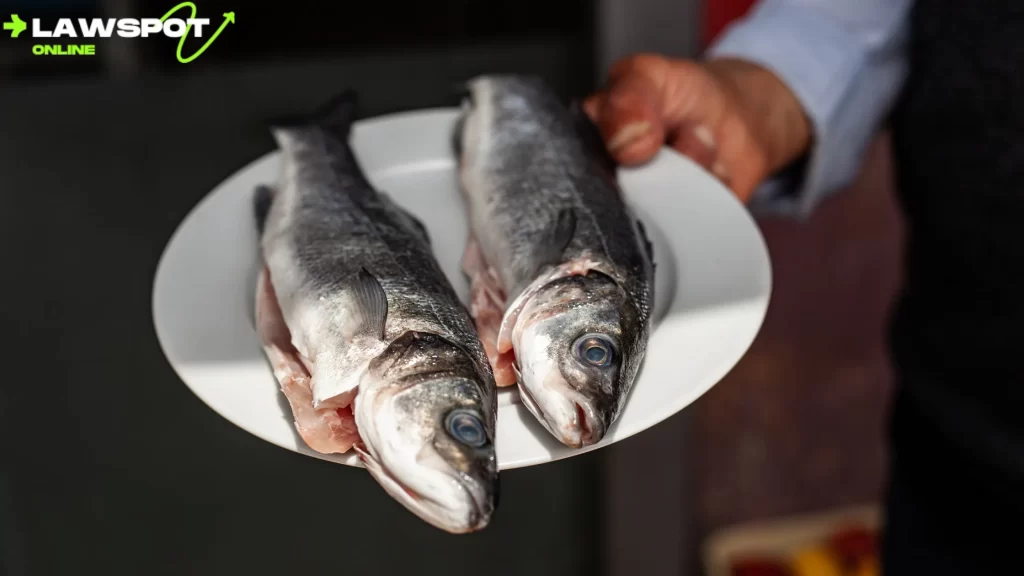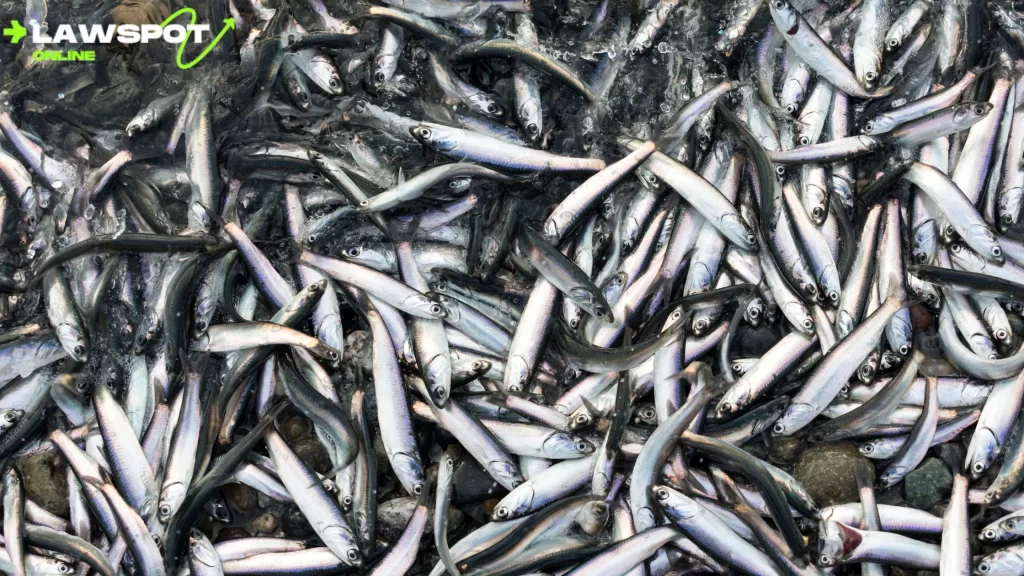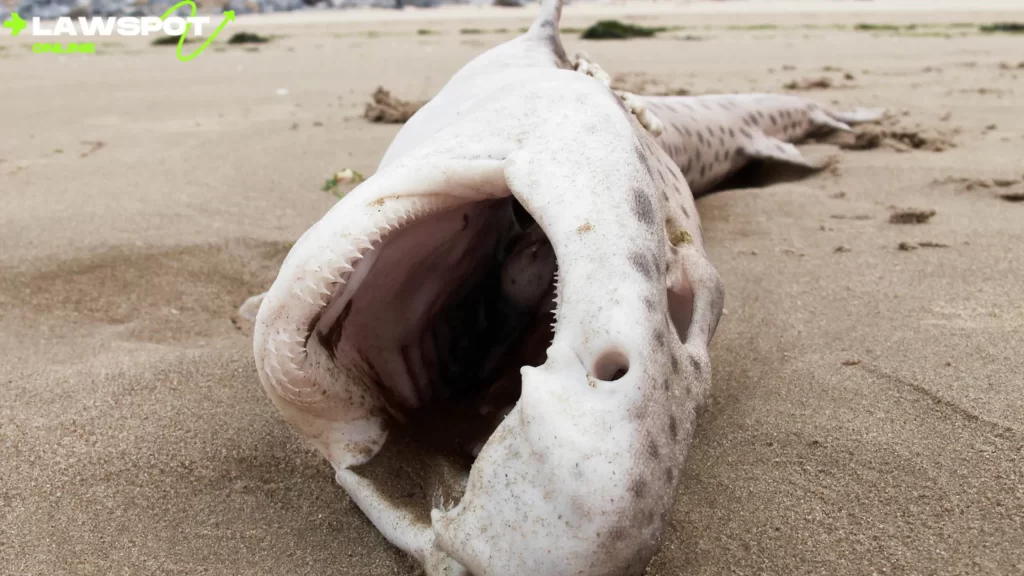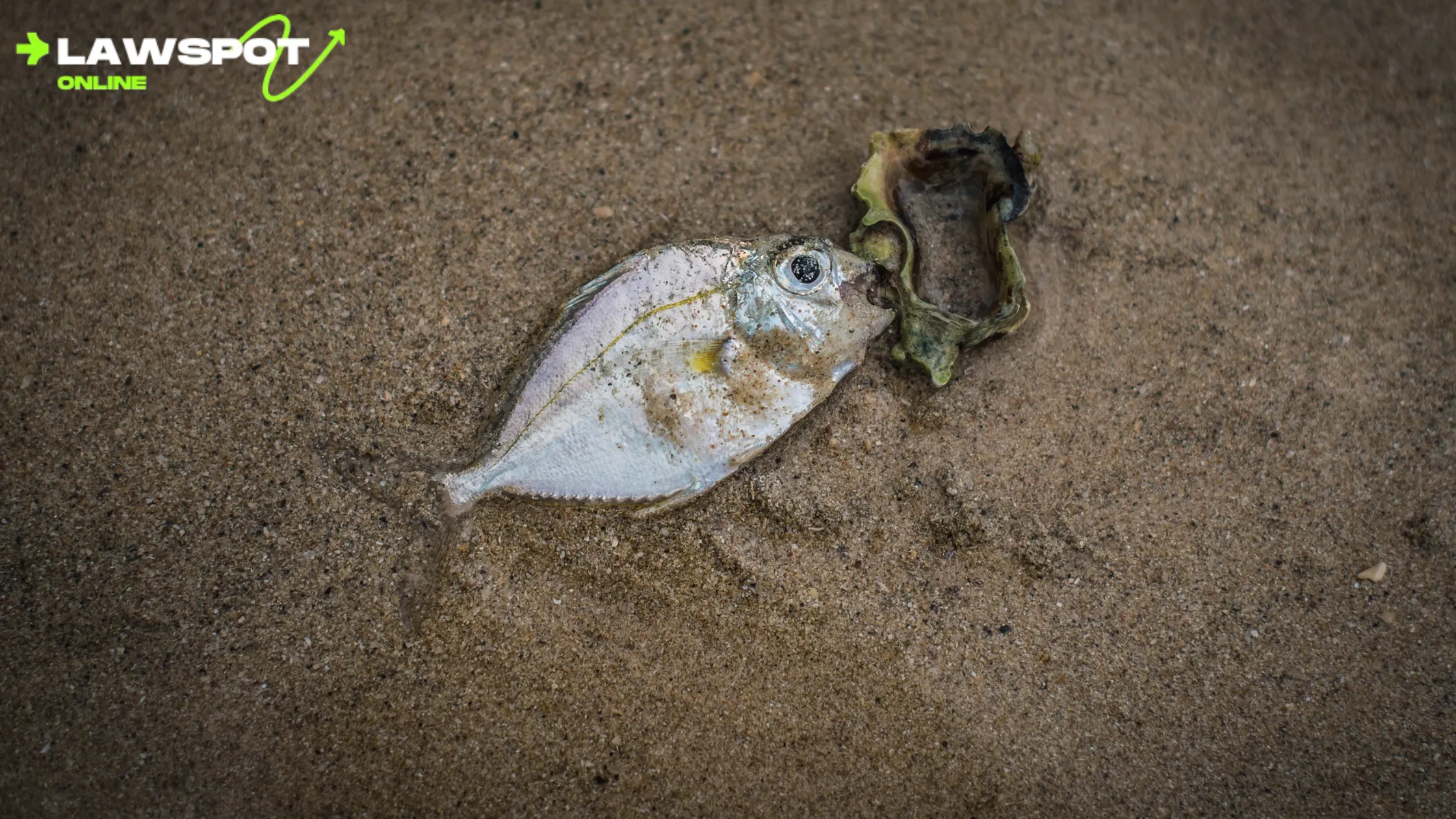Table of Contents
Have you ever strolled along the beach, noticing a dead fish lying by the shore? If you’ve ever thought, “Can you eat dead fish that wash up?” you’re not alone. The answer might shock you, and it’s more than just about cooking it up for a quick dinner. In this article, we will explore the truth about eating dead fish found on the beach, the risks, and what to do if you encounter one.
What Causes Fish to Wash Up on Shore?

Before diving into whether can you eat dead fish that wash up, it’s essential to understand why fish wash up in the first place. Fish die for different reasons, and knowing the cause might help you make a more informed decision.
- Natural Fish Death: Fish die naturally, and waves can carry them ashore. The ocean currents sometimes sweep these dead fish to the beach, whether it’s old age, illness, or injury.
- Water Pollution: Pollution in the sea, including toxins, chemicals, and oil spills, can kill fish. Fish that have absorbed these pollutants can be dangerous to eat.
- Lack of Oxygen in Water: Fish need oxygen just like us. Sometimes, fish die from suffocation when algae blooms take up too much oxygen in the water. When fish die from this, they can wash up on the shore.
So, after understanding the causes, can you eat dead fish that wash up? Let’s break it down further.
Also Read: Do Food Colors Expire? Uncover the Shocking Truth You Need to Know
Is It Safe to Eat Dead Fish That Wash Up?

Seeing a dead fish on the shore may feel like an opportunity for a free seafood dinner, but can you eat dead fish that wash up safely? The short answer is no, and here’s why:
- Unknown Health Risks: You have no way of knowing how long the fish has been dead, what caused its death, or if it carries harmful bacteria or parasites. Fish that die from fish disease or pollutants are unsafe for human consumption.
- Spoilage and Decomposition: Fish spoil rapidly once out of the water. A fish that has washed ashore could already be decomposing with spoiled flesh. Eating decomposed fish can cause food poisoning, making you feel very sick.
- Toxins and Contaminants: Fish washing up on shore may have been exposed to dangerous chemicals, heavy metals, or pollutants. These toxins remain in their flesh even after they die, making them unsafe to eat.
Can you eat dead fish that wash up even if they look okay? The risks are too high, so it’s better to avoid eating them altogether.
The Dangers of Eating Fish from Polluted Waters

When asked if you can eat dead fish that wash up, one major concern is pollution. Fish living in polluted waters are exposed to harmful chemicals, and consuming them could lead to serious health issues.
- Heavy Metals: Mercury and lead are commonly found in fish from polluted areas. These heavy metals are dangerous to human health, especially if you eat fish regularly. Consuming them can cause long-term damage to your body.
- Bacteria and Parasites: Polluted waters can contain harmful bacteria and parasites that enter the fish. Even if you cook the fish thoroughly, some organisms can survive and cause illness.
So, can you eat dead fish that wash up from polluted waters? It’s a firm no.
Can Cooking Make It Safe?
Cooking can make a dead fish safe to eat. But even cooking won’t eliminate all the risks.
- Bacterial Infections: Cooking can kill bacteria but won’t remove toxins or heavy metals. If the fish died because of pollution or toxins, consuming it will still be dangerous.
- Decomposing Fish: Fish begin to rot quickly after they die. Even if you cook it, the fish could still make you sick because it has already started decomposing.
Can you eat dead fish that wash up after cooking them? Cooking may kill some harmful elements, but it doesn’t guarantee safety, especially when dealing with pollution or rotting fish.
Also Read: Whole Foods Town and Country: Uncover Surprising Delights Inside
What Should You Do If You Find a Dead Fish?
If you spot a dead fish on the beach, it’s best not to touch it. Here’s what you can do instead:
- Avoid Touching It: Don’t handle dead fish because you don’t know what killed it. You could expose yourself to harmful bacteria or toxins.
- Report Large Numbers: If you find a large number of dead fish on the beach, it could be a sign of a bigger problem, like pollution or disease in the water. Alert local authorities or environmental groups.
- Leave It for Nature: Dead fish provide food for birds and shrimp that clean up the ecosystem. Cleaner shrimp and other scavengers depend on dead fish for food, so it’s best to leave the fish there for them.
The Role of Dead Fish in the Ecosystem
It can seem sad when fish die and wash up on shore, but they are part of a bigger picture. Dead fish feed animals like birds and corals, and their bodies become part of the nutrient cycle. Can you eat dead fish that wash up? No. But other creatures in the ecosystem rely on them for survival.
In aquatic systems, dead fish also play an essential role. Like in aquariums and previous aquariums, the balance of life and death keeps the system functioning. Corals and scavengers like cleaner shrimp depend on this cycle to stay alive. So, the next time you spot a dead fish, know it is still valid—just not for your dinner.
Why Are Fish Important to Our Ecosystem?
Fish are essential to the ocean and the human food chain. They contribute to the health of corals, provide food for shrimp, and keep the balance of life in the se a. When a peaceful fish dies, it becomes part of a natural process that feeds other animals, including red herring and squid. Fishermen rely on healthy fish populations, and dead fish play their part in keeping them balanced.
Also Read: Can You Eat Dead Fish That Wash Up? Shocking Answer!
The Mystery of Fish Deaths and Disappearances
Have you ever wondered why fish sometimes disappear from certain ocean areas? Strong currents carry away some fish, while others die and wash up on shore. New fish are constantly being born, keeping the cycle going. However, when large numbers of fish die, it can be a sign of environmental trouble.

